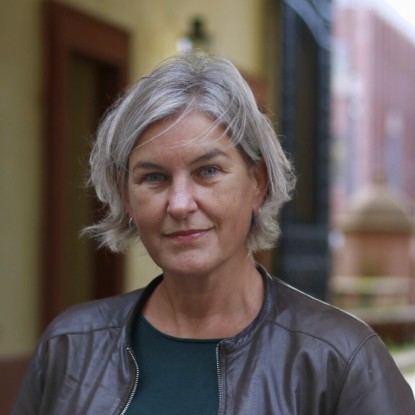In our work, we empirically investigate the complex relationships between society and space. We investigate how people perceive, shape and transform (urban) space. This includes exploring the development of everyday urban routines, as well as the social inclusion and exclusion mechanisms and architectural structures that emerge from these routines. Additionally, we scrutinize the dynamics when these routines are disrupted by events like controversies, protests, migratory movements, natural disasters, or acts of violence, necessitating a renegotiation of established norms. These events are often accompanied by visible changes in urban landspaces, leading to public debates and actions, which in turn (re)define spaces
Urban and Spatial Sociology uniquely blends sociological theories with an empirical examination of the material dimension of social phenomena. We employ a diverse array of methodological approaches and theoretical perspectives to research social and built-spatial phenomena, considering their context and in their local, regional and global interrelationships.
Our research encompasses a range of topics such as the interpretation of urban heritage and its role in contested identity formation, the dynamics of inclusion and exclusion in urban spaces, the construction and safeguarding of critical infrastructures, and the analysis of the interplay between violence, cities, and spaces. We also investigate varying societal perceptions of urbanity and cities in both contemporary and future contexts. Emphasizing interdisciplinary collaboration, we work closely with researchers from the fields of architecture, urban planning, history, political science and real estate economics. These diverse fields of work and cooperation enable us to conduct both intensive individual case studies and comprehensive comparative research, enhancing our understanding of the complex dynamics of urban spaces both within and beyond Germany.
As an empirical discipline, Urban and Spatial Sociology at our department primarily utilizes qualitative methods and at the same time works in a methodologically innovative way. Our research methodologies include a variety of qualitative interviews and surveys, complemented by content-analytical evaluations. Furthermore, we employ document analyses (e.g. media analyses, policy analyses), visually supported methods and analyses (e.g. photo documentation, mapping analyses) as well as ethnographic, multimodal and mixed-methods approaches.
A key aspect of our methodological innovation involves the integration of spatial dimensions into data collection, exemplified by mobile methods such as go-along interviews. This allows us to continually develop and refine our approaches to spatial research, ensuring a comprehensive and nuanced understanding of our study areas.
As a part of the Institute of Sociology, we aim to play a decisive role in shaping urban and spatial sociology as a sociological sub-discipline. International exchange and the implementation of research projects in the Global North and South are particularly important to us. Our commitment extends to engaging the public with our findings, providing scientifically grounded insights into the past, present, and future of urban spaces
- Our work is firmly rooted in the tradition of sociological theory, from which we draw a variety of ideas and concepts.
- Our research prioritizes understanding people's subjective experiences in urban spaces, employing a multi-methodical approach to capture these perspectives.
- Our scientific approach is characterized by multi-perspectivity, as we look at a wide variety of social phenomena, as well as by critical reflection in order to better understand their complex interrelationships.
- As sociologists, we position ourselves at the intersection of multiple disciplines, collaborating with other social and historical sciences as well as engineering fields.
- Theories of space and the city
- Urban cultural heritage, memory cultures and identity constructions
- Intersections of city, violence, and space
- Urban globalization processes, mobility and migration dynamics
- Socio-spatial inequalities, segregation and social exclusion
- The impacts of gentrification
- Critical infrastructures and their functional crises
- Urban resilience and vulnerability
- Entrepreneurial approaches to urban development
- Tourism dynamics and cultural impacts in cities
- Housing and housing quality
- Association of Critical Heritage Studies (ACHS)
- Deutsche Gesellschaft für Soziologie (DGS)
- Gesellschaft für Stadtgeschichte und Urbanisierungsforschung (GSU)
- International Sociological Association (ISA)
- Memory Studies Association (MSA)


